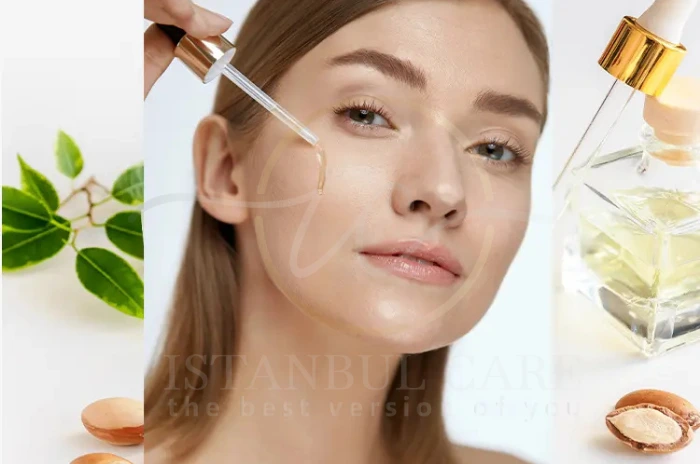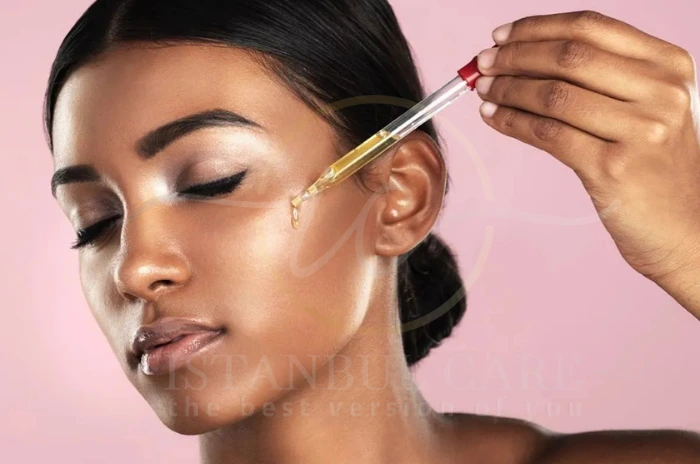Argan oil has become one of the most sought-after natural oils in beauty and wellness. Whether you're targeting frizzy hair or dry skin, argan oil for hair and skin offers impressive results. This luxurious golden oil is packed with nutrients and antioxidants that promote overall health for both skin and hair. If you're looking for a natural remedy to add to your daily routine, argan oil can help transform your beauty regimen.
What is argan oil?
Argan oil is a plant oil extracted from the kernels of the argan tree, native to Morocco. It's often referred to as "liquid gold" due to its rich golden color and nutrient-dense composition. Traditionally used in Moroccan culture for cooking and beauty, organic argan oil is now widely used in skin and hair care products globally. Its high levels of vitamin E, fatty acids, and antioxidants make it highly beneficial for hydration, protection, and rejuvenation.
Benefits of argan oil
The benefits of argan oil are vast and apply to both cosmetic and therapeutic applications. It deeply moisturizes dry areas, soothes inflammation, and restores the natural glow of skin and hair. Argan oil is also known to reduce signs of aging, such as wrinkles and fine lines. Thanks to its antioxidant content, it helps neutralize free radicals that cause premature skin and hair damage.
Protects against heat and styling damage
Applying argan oil for hair before using heat tools like blow dryers or flat irons can form a protective barrier. This barrier reduces moisture loss and helps prevent breakage caused by heat styling. Over time, regular use enhances resilience and shine, even for color-treated or chemically processed hair.
Should I use argan oil on my scalp?
Yes, argan oil can help soothe a dry, itchy scalp and even combat dandruff. Its anti-inflammatory and antifungal properties support scalp health, especially in cases of irritation or flaking. Massaging a few drops into the scalp improves blood circulation and promotes healthier hair growth.
What to look for when buying argan oil
When shopping for argan oil, prioritize products labeled as "100% pure" or organic argan oil. Look for oil stored in dark glass bottles to prevent oxidation. Cold-pressed formulations are ideal because they retain more nutrients than heat-processed versions.
Benefits of argan oil for skin
1. Protects from sun damage
Argan oil for skin contains antioxidants that can help protect the skin from UV rays. In Moroccan tradition, it has long been used to prevent sunburn and pigmentation. Although it doesn't replace sunscreen, it can be a supportive layer in sun care.
2. Moisturizes skin
As a natural argan oil moisturizer, it hydrates without clogging pores. It's suitable for all skin types, including sensitive and acne-prone. It leaves the skin soft, nourished, and plump without a greasy feel.
3. Treats a number of skin conditions
Argan oil is often used to ease symptoms of eczema and psoriasis. Its soothing and healing properties reduce redness, dryness, and discomfort. Continued use can improve skin texture and decrease flare-ups.
4. Treats acne
Because of its anti-sebum effects, argan oil for skin can regulate the skin’s oil production. Treats acne also contains linoleic acid which reduces inflammation and prevents acne formation. Unlike heavy creams, it doesn't clog pores.
5. Heals skin infections
The antimicrobial components in argan oil assist in treating minor wounds and bacterial infections. This makes it an ideal addition to natural first-aid solutions. Applying it topically supports faster recovery.
6. Improves wound healing
Argan oil promotes tissue regeneration and speeds up wound healing. Its vitamin E and fatty acids boost skin repair and reduce scarring. It’s particularly effective for post-acne marks and small cuts.
7. Reduces skin’s oiliness
Argan oil helps balance the skin’s natural oils. By hydrating the skin properly, it signals the sebaceous glands to produce less oil. This makes it beneficial for oily and combination skin types.
Side effects and risks of argan oil
While argan oil is generally safe, some individuals may experience allergic reactions. These can include redness, itching, or rash. Always perform a patch test before widespread use, especially on sensitive skin.
Is argan oil safe to consume?
Argan oil is also used in cooking and is safe to consume in its edible form. Culinary argan oil is roasted and has a nutty flavor, rich in healthy fats. It can benefit heart health, cholesterol levels, and digestion when used in moderation.
Argan oil benefits for hair
| Benefit | Hair | Skin |
|---|---|---|
| Moisturization | Adds lightweight moisture | Deeply hydrates dry, flaky skin |
| Frizz Control | Smoothens and tames frizz | — |
| Healing Properties | Repairs split ends and breakage | Treats wounds, acne, and eczema |
| Anti-Aging | Adds shine and bounce | Reduces wrinkles and improves elasticity |
| UV Protection | Protects hair from sun and heat styling | Helps prevent sunburn and photo-aging |
| Oil Regulation | Balances scalp oil | Controls sebum and reduces oiliness |
1. Minimizing frizz
Argan oil for frizz works by smoothing the hair cuticle and adding moisture. It tames flyaways and leaves hair looking polished and sleek. This is particularly useful in humid climates.
2. Enhancing hair shine
Thanks to its reflective properties, argan oil for hair boosts natural shine. It makes dull, dry hair appear healthier and more vibrant. A few drops go a long way in restoring luster.
3. Preventing hair breakage
The nutrients in argan oil strengthen strands and reduce split ends. This makes it easier to grow longer, healthier hair. Regular application also improves manageability.
4. Improving hair elasticity and manageability
Hair becomes more flexible and less prone to snapping with argan oil treatments. This makes detangling easier and reduces hair fall during brushing. Curly and textured hair especially benefits from this.
5. Adding lighter moisture that does not weigh hair down
Unlike heavy creams or butters, argan oil provides hydration without making hair greasy. It’s perfect for fine or thin hair that needs moisture without volume loss. It leaves hair light, bouncy, and nourished.
Other uses for argan oil
1. Make-up remover
Argan oil dissolves makeup, including waterproof mascara, while conditioning the skin. It removes impurities without stripping the skin’s natural oils. Just apply with a cotton pad and wipe gently.
2. Hair treatment
Apply argan oil as a pre-shampoo treatment or overnight mask. This deeply nourishes the strands and repairs damage. Wash thoroughly with a mild shampoo in the morning.
3. Protect skin from sun damage
Used along with sunscreen, argan oil offers antioxidant support. It helps soothe sunburns and prevent peeling. Its high vitamin E content aids in skin recovery.
4. Moisturiser
A few drops of argan oil can replace traditional face or body lotions. It works well for both day and night use. Add it to your routine after cleansing.
5. Treating cuticles
Massage argan oil into nails and cuticles to soften and strengthen them. This reduces brittleness and encourages healthy nail growth. It also adds a polished look to your hands.
6. Treating acne
Its anti-inflammatory nature helps calm active breakouts. Regular use can reduce acne scars over time. It also balances oil levels on the skin.
7. Anti-aging
Argan oil for anti aging targets fine lines, age spots, and dullness. It enhances collagen production and improves skin elasticity. Use nightly for the best results.
8. A skin brightener
Argan oil can improve overall skin tone and glow. It reduces dullness and evens out pigmentation. Over time, your complexion appears more radiant and refreshed.
Is Argan Oil Good for Face?
Yes, argan oil for face is beneficial due to its lightweight texture and nutrient-rich profile. It absorbs quickly and delivers hydration, without clogging pores. Ideal for both dry and oily skin types, it supports anti-aging, acne control, and skin softness.

Tips for using argan oil
1. For the skin
1. As a daily moisturizer
Apply 2-3 drops to cleansed skin every morning and night. Let it absorb fully before applying makeup or sunscreen. It works as a base layer for skincare routines.
2. For dry areas
Use argan oil on elbows, knees, and heels to soften dry patches. Apply generously and massage until fully absorbed. Regular use improves skin texture and comfort.
2. For hair
1. As a leave-in treatment
Rub a few drops between your palms and apply to towel-dried hair. Focus on the ends and mid-lengths. Style as usual afterward.
2. As a hair mask
Saturate your hair with argan oil and leave it in for 30 minutes to overnight. Wrap with a warm towel or shower cap. Rinse thoroughly with shampoo for soft, nourished hair.
3. For nails
1. Nail Strengthening
Massage a drop of argan oil into each nail and cuticle nightly. It strengthens and hydrates brittle nails. Over time, nails become shinier and healthier.
4. Precautions and advice
1. Oil Quality
Always choose organic argan oil that is cold-pressed and free from additives. Quality determines effectiveness and safety. Avoid artificially scented or chemically altered products.
2. Storage
Keep the oil in a cool, dark place away from sunlight. This preserves its nutrients and prevents rancidity. Ensure the cap is tightly sealed after each use.
Argan Oil Tips Before Use
- Do a patch test before first-time use to rule out allergies.
- Use small amounts to avoid greasiness.
- Incorporate into routine gradually to observe effects.
- Combine with other oils like avocado oil for enhanced benefits.
- Choose pure, cold-pressed oil for best results.
We’re ready to answer your questions
Argan oil is extracted from the kernels of the argan tree, native to Morocco. It is rich in vitamin E and fatty acids, making it excellent for both skin and hair care.
It reduces frizz, adds shine, prevents breakage, and improves manageability. It also hydrates the hair without weighing it down.
Argan oil moisturizes, soothes inflammation, treats acne, and protects from environmental damage. It also helps in anti-aging and improves skin tone.
Yes, argan oil nourishes the scalp, reduces itchiness, and promotes healthy hair growth. It's especially useful for dry or flaky scalp conditions.
Look for cold-pressed, organic argan oil in dark glass bottles. Avoid products with additives, fragrances, or unclear sourcing.
While rare, allergic reactions such as itching or redness may occur. Always perform a patch test before full application.
Use it as a daily moisturizer, hair serum, or overnight mask. It also works well on nails, cuticles, and dry body areas.
Yes, argan oil is suitable for all types, including oily, sensitive, and dry. Its lightweight nature allows it to hydrate without clogging pores or making hair greasy.
Follow us on social media for updates, tips, and patient success stories:


